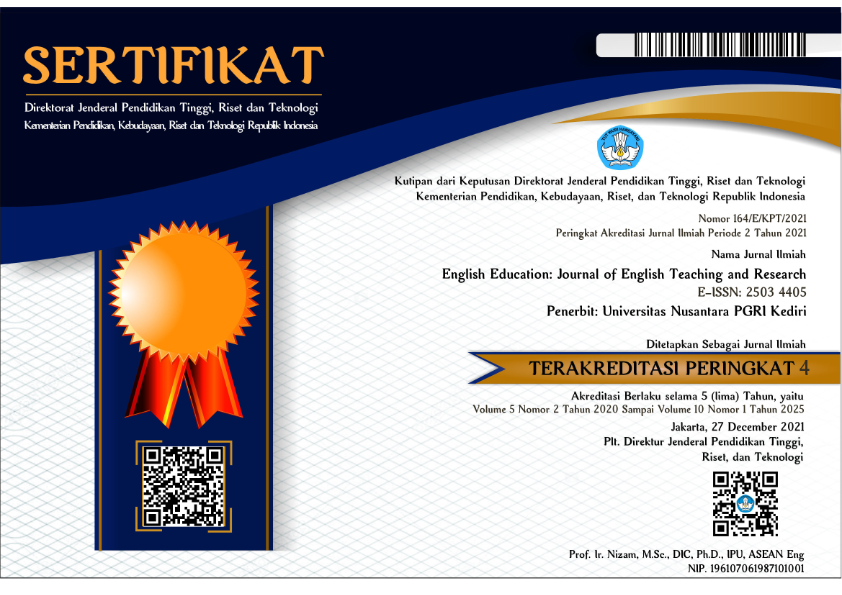A Building Students’ Life Skill through Project-Based Learning:
English
DOI:
https://doi.org/10.29407/jetar.v4i1.12908Abstract
The academic goal of teaching in university level is to reach certain learning outcomes. Speaking for Informal Communication is one of the subjects which enable students to describe, explain, negotiate, persuade, and influence other speakers using the target language on certain topics. The lecturers not only have to choose an appropriate teaching strategy to reach the goal, but also to select the suitable materials and activities in order that the students can apply the skills of speaking. One of the strategies is by applying Project Based Learning in which the students must create a project in groups. Through this strategy the students are able to reach the academic goal of teaching speaking and practice to build some qualities in life skill, such as a) awareness of the students’ potency and the values found in the local wisdom, b) cooperative working and communication skill, c) critical thinking, d) academic skill, and e) honesty. Those qualities are very important to equip the students to win the global competition. This research describes how life skills were built through Project Based Learning in speaking class and the students’ perspective on how the qualities of life skills were built through the experience of creating project. It is a qualitative research which observed the process of teaching and learning in speaking class. Besides, in-depth interview to the students was carried out to collect the data on their perspective of those skills. The results show that through the stages of creating the project, that was vlog, the students felt that they got many challenges to create the project. They admitted that the challenges built their life skills.
Downloads
Downloads
Published
Issue
Section
License
Authors who publish with this journal agree to the following terms:
- Copyright on any article is retained by the author(s).
- The author grants the journal, the right of first publication with the work simultaneously licensed under a Creative Commons Attribution License that allows others to share the work with an acknowledgment of the work’s authorship and initial publication in this journal.
- Authors are able to enter into separate, additional contractual arrangements for the non-exclusive distribution of the journal’s published version of the work (e.g., post it to an institutional repository or publish it in a book), with an acknowledgment of its initial publication in this journal.
- Authors are permitted and encouraged to post their work online (e.g., in institutional repositories or on their website) prior to and during the submission process, as it can lead to productive exchanges, as well as earlier and greater citation of published work.
- The article and any associated published material is distributed under the Creative Commons Attribution-ShareAlike 4.0 International License








 Article template
Article template



